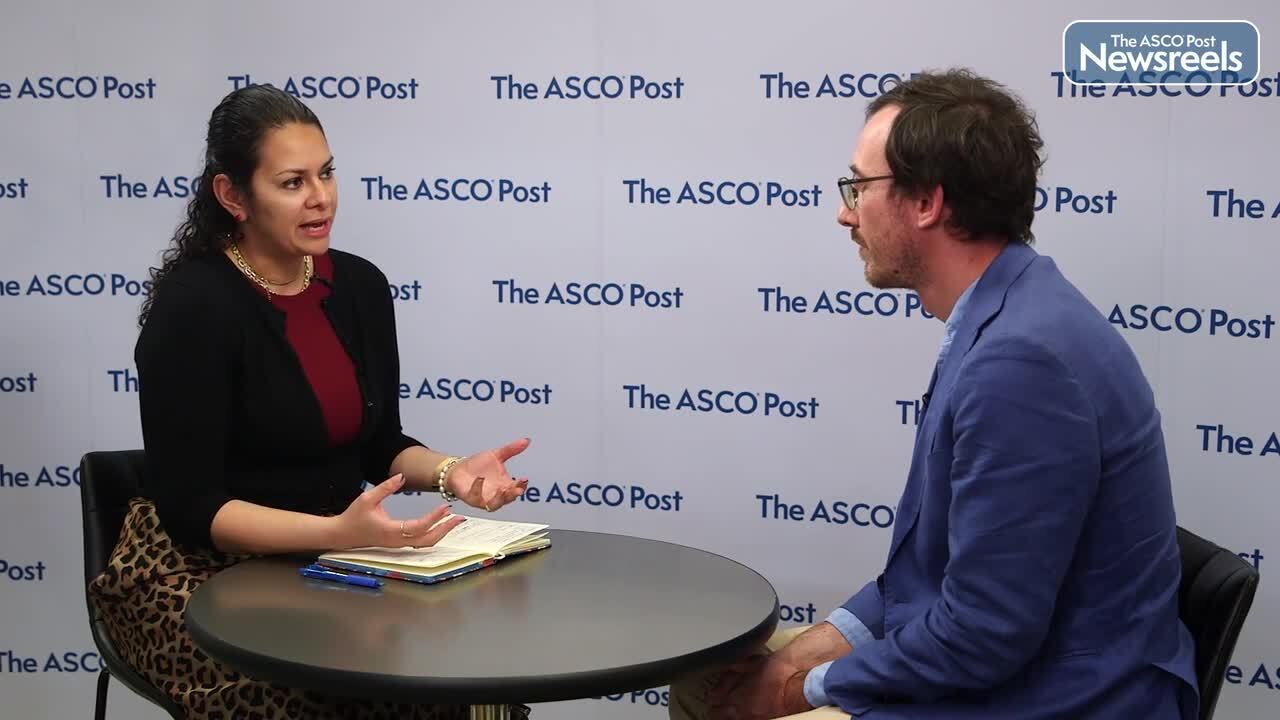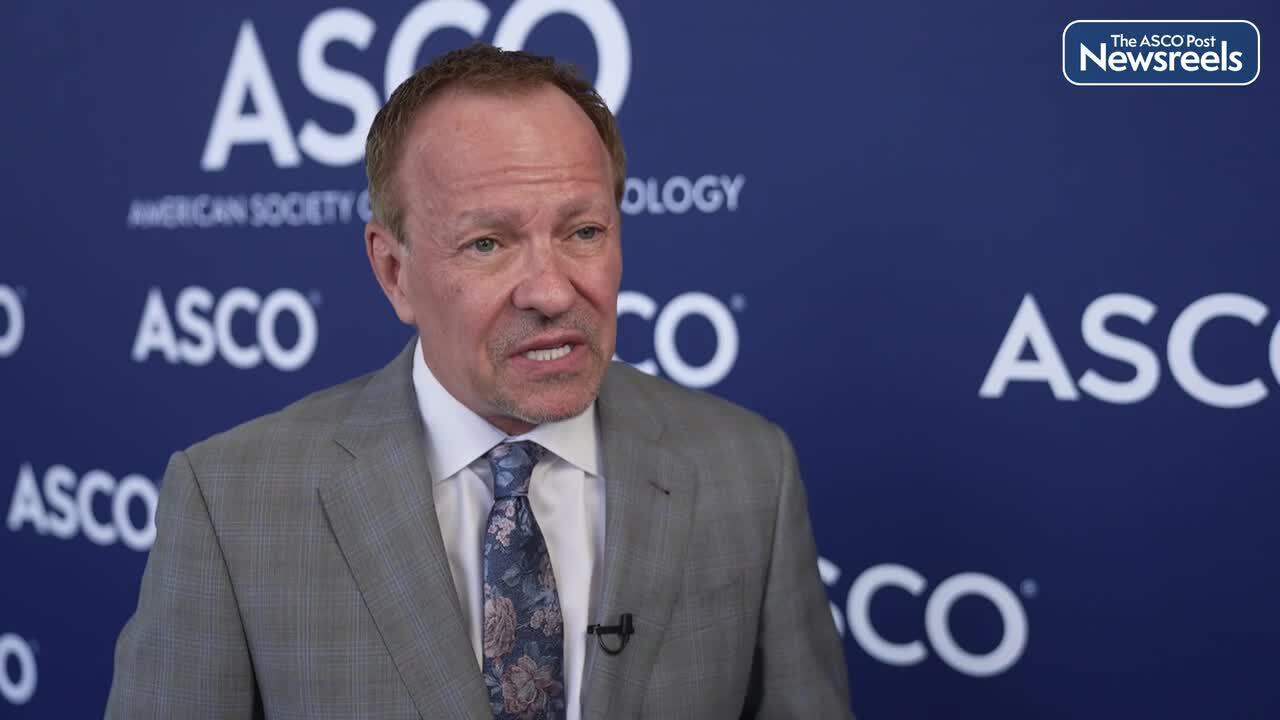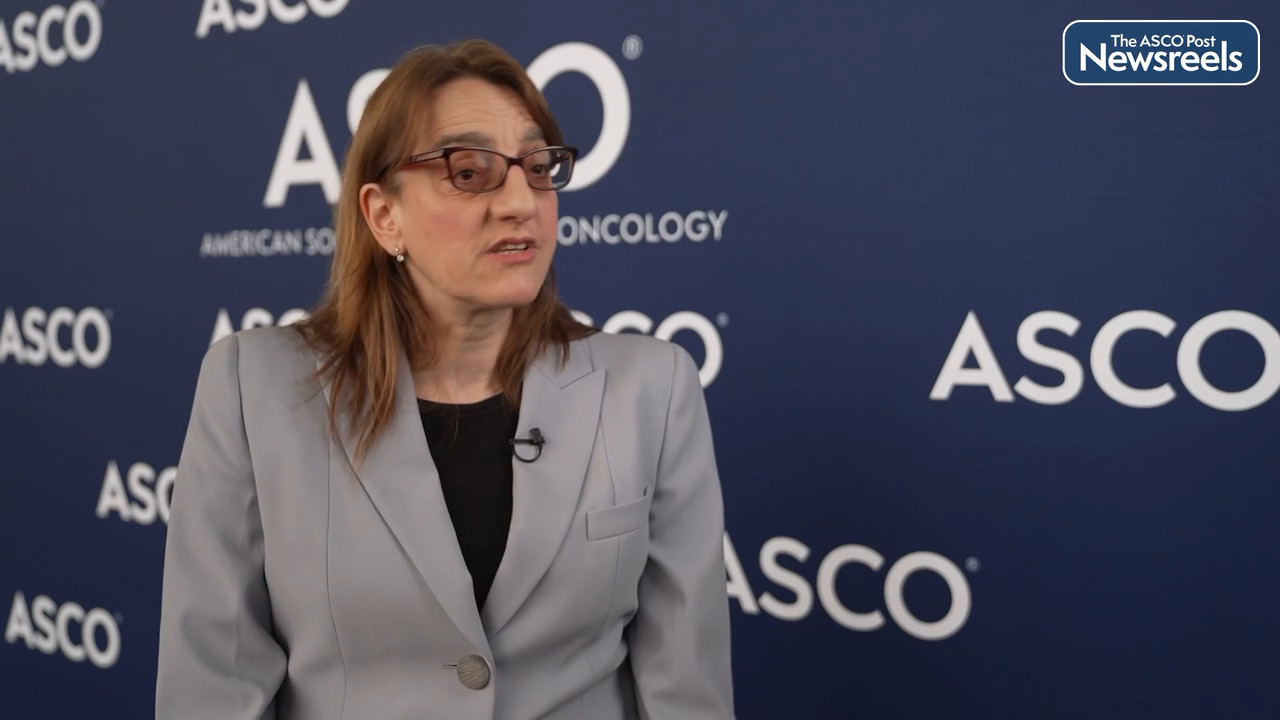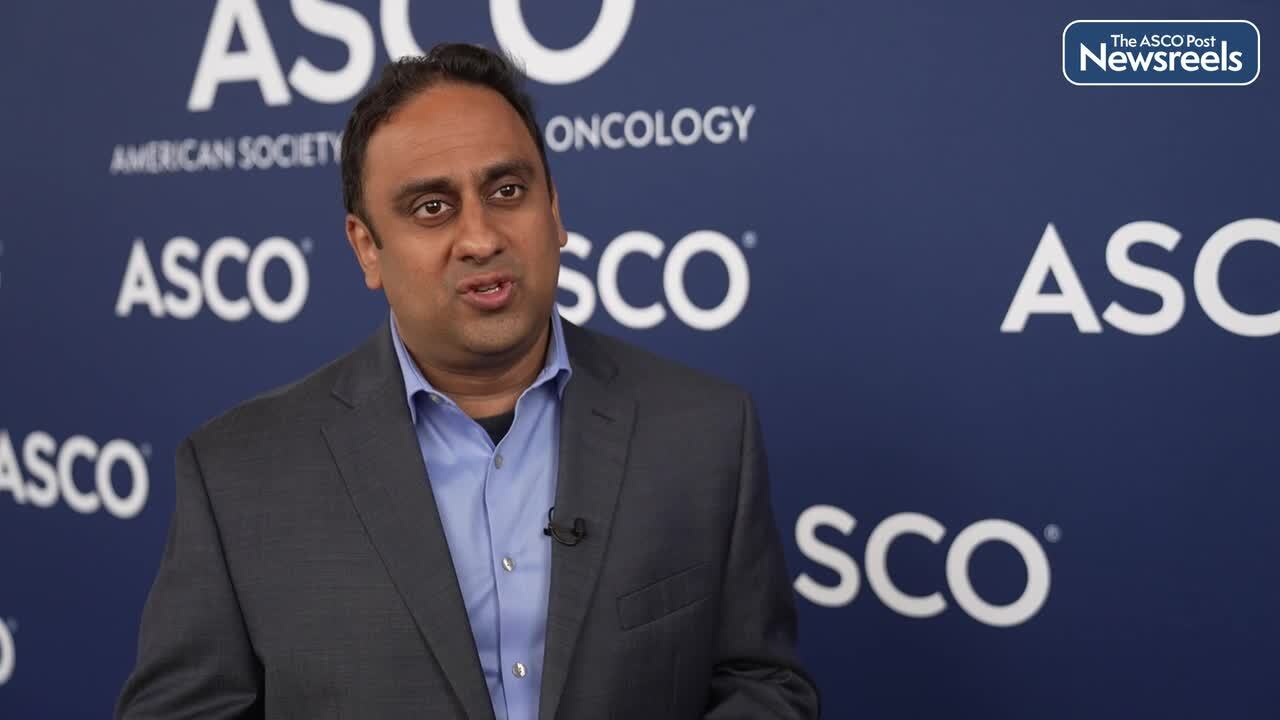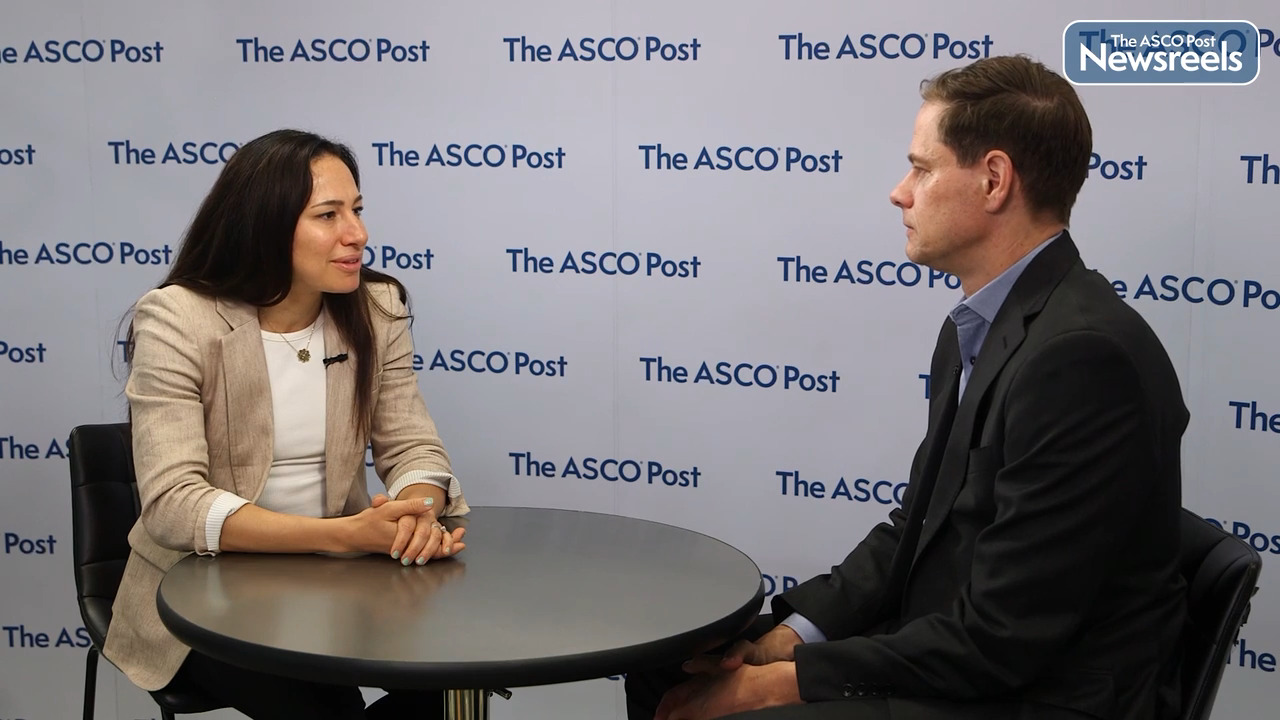Paula Aristizabal, MD, MAS, on Surviving Childhood Leukemia Near the Border of the United States and Mexico
2023 ASCO Annual Meeting
Paula Aristizabal, MD, MAS, of the University of California, San Diego, and Rady Children’s Hospital, talks about using a health systems strengthening approach to improve leukemia care and survival in a public Mexican hospital in the region of the border between the United States and Mexico. The demonstrated increase in overall survival across a decade after implementation of the program seems to validate the use of such models, not only to improve clinical outcomes, but also to build sustainable hospital capacity, financially and organizationally (Abstract 1502).
Transcript
Disclaimer: This video transcript has not been proofread or edited and may contain errors.
Paula Aristizabal, MD:
Acute lymphoblastic leukemia is the most common childhood cancer and survival has improved dramatically in high income countries to rates over 80%. Unfortunately, in low and middle income countries, survival has not increased at the same pace. For example, in Mexico, a low income country that is just across the border from the US, survival range is between 10% and 60%. Since in San Diego we share a border with Tijuana, we saw the disparities and we thought that it was our social responsibility to do something about it so we implemented a twinning program and twinning involves when a center of excellence in a high income country partners and collaborates with a center in a low, middle income country. We started this twinning program in 2008 in collaboration with St. Jude Children's Research Hospital, and we were able to implement a new team in Tijuana that was able to provide the best care possible for all the pediatric cancers.
Then in 2013, we realized that the burden of leukemia was getting higher and higher and we decided to implement a new model of health system strengthening called the WHO Framework for Action. The WHO Framework for Action has six building blocks that provide all the elements to improve care in a health system. We incorporated the WHO Framework for Action into the already existing twinning model to improve leukemia survival. We provided training to the team in Tijuana. We provided protocols that they could adapt. We provided mentorship and we provided support for a new infrastructure to develop the best possible leukemia care for children with with leukemia in Baja, California, Mexico.
After the implementation of the program, survival for leukemia improved from 59% to 65% and, importantly, the survival for standard risk leukemia improved from 73% before implementing the program to 100%, which is totally amazing because that is the same survival that we have in San Diego, just 20 miles from Tijuana. Survival for high risk leukemia improved from 48% to 55%. It wasn't so significant but we know that that is an area of improvement that we hope that we can tackle in our next steps of the program. Our model in Tijuana, combining a twinning program with the WHO Framework for Action, was effective in improving survival in a low and middle income country. This model can be applicable to a partnership between a high income country and a low, middle income country, especially in regions that share a border but also in other low and middle income countries remotely. Something that we learned from COVID is that you can apply many of these models working remotely and we are extremely pleased with these results. Our next steps include the improvement of the survival for patients with high risk leukemia.
Related Videos
The ASCO Post Staff
Narjust Florez, MD, of Dana-Farber Cancer Institute, and Filippo Gustavo Dall’Olio, MD, of Institut Gustave Roussy, discuss circulating tumor DNA tumor fraction, and its link to survival in patients with advanced non–small cell lung cancer (NSCLC) treated with maintenance durvalumab in the UNICANCER SAFIR02-Lung/IFCT1301 trial. Tumor fraction was positive in 16% of patients randomly assigned to receive durvalumab in the study. This population seems to have a limited benefit from maintenance durvalumab after induction chemotherapy (Abstract 2516).
The ASCO Post Staff
Bradley J. Monk, MD, of the University of Arizona, Phoenix, and Creighton University, discusses phase III findings from the KEYNOTE-826 study of overall survival results in patients with persistent, recurrent, or metastatic cervical cancer. Study participants received first-line treatment of pembrolizumab plus chemotherapy, with or without bevacizumab, which reduced the risk of death by up to 40% in three different subsets of patients (Abstract 5500).
The ASCO Post Staff
Funda Meric-Bernstam, MD, of The University of Texas MD Anderson Cancer Center, discusses interim results from the DESTINY-PanTumor02 trial, the first tumor-agnostic global study of fam-trastuzumab deruxtecan-nxki (T-DXd) in a broad range of HER2-expressing solid tumors. This agent showed an encouraging overall response rate, particularly in patients with IHC 3+ expression; durable clinical benefit; and a manageable safety profile in these heavily pretreated patients. T-DXd may be a potential new treatment option for this population (Abstract LBA3000).
The ASCO Post Staff
Nirav N. Shah, MD, of the Medical College of Wisconsin, discusses the efficacy and safety of pirtobrutinib, a highly selective, noncovalent BTK inhibitor, studied for more than 3 years in the BRUIN trial. The results showed that the use of pirtobrutinib continues to have durable efficacy and a favorable safety profile in heavily pretreated patients with relapsed or refractory mantle cell lymphoma and prior BTK inhibitor therapy. Responses were observed in patients with high-risk disease features, including blastoid/pleomorphic variants, elevated Ki67 index, and TP53 mutations (Abstract 7514).
The ASCO Post Staff
Rana R. McKay, MD, of the University of California, San Diego, and Brian I. Rini, MD, of Vanderbilt-Ingram Cancer Center, discuss the 5-year follow-up results with the combination of a checkpoint inhibitor plus a VEGFR tyrosine kinase inhibitor as first-line treatment for patients with advanced clear cell renal cell carcinoma (RCC). Pembrolizumab plus axitinib continued to demonstrate improved survival outcomes as well as overall response rate vs sunitinib for patients with previously untreated disease (Abstract LBA4501).
